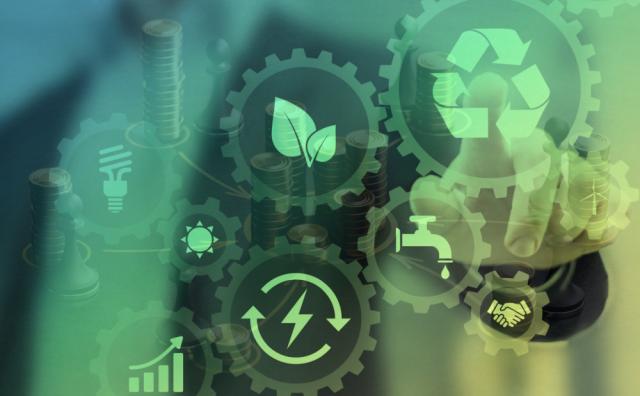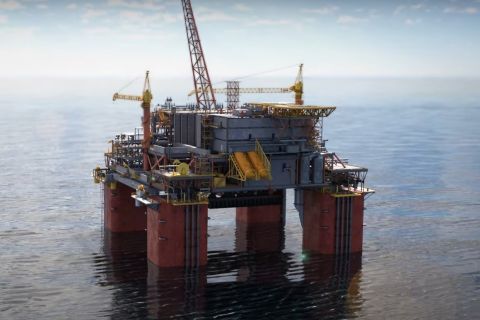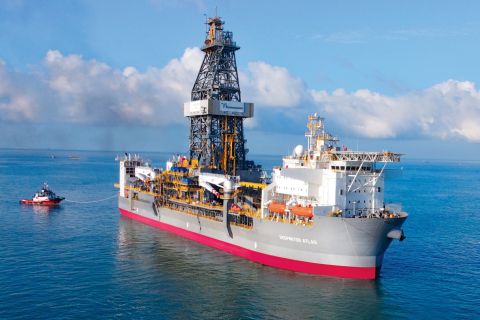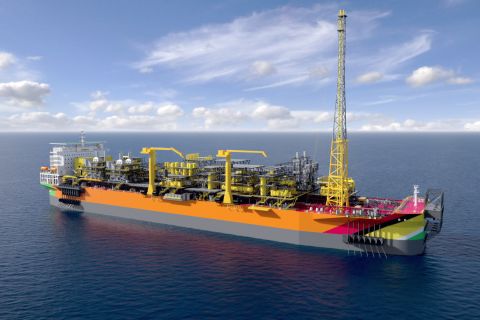
As the energy transition unfolds amid growing ESG responsibilities, investors are looking for and finding opportunities in certain technologies across energy sectors. (Source: Shutterstock.com/Hart Energy)
Where do private equity investors want to place bets?
They’re seeing value in ESG-friendly emerging technologies like battery recycling, real-time continuous monitoring equipment and software, and other areas focused on sustainability, including in the traditional oil and gas business, according to a trio of Dallas-based private equity investors speaking at Hart Energy’s recently-held ESG Conference.
Big opportunity is also being detected in waste.
“We talk about zero emissions, but the one that’s actually relevant to us is zero landfill,” said John Schaufele, founding and managing director of Freestone HoldCo LLC, a Tailwater Capital portfolio company.
Companies such Unilever, Procter & Gamble and Owens Corning have committed to cutting plastic and other forms of waste as part of a transition to a circular economy with recycling at its core. Many have pledged to send no manufacturing waste to landfills, aiming to make more—if not all—consumer packaging recyclable or reusable. Focus, however, is also on turning landfill waste into products—be it energy or something else.
Technologies that make it all happen are on the radars of private equity investors. As the energy transition unfolds amid growing ESG responsibilities, investors are looking for and finding opportunities in certain technologies across energy sectors.
“Lots of different industries are focused on sustainability and being able to utilize end-of-life products,” Schaufele said. “So, there are a lot of really interesting technologies out there that take the trash and turn it into … something that we all can use. It really spans everything: plastics, batteries, fiberglass, you name it.”
Feedstock destined for landfills was initially free and easily obtained, he added, but “everybody’s going to want it” if the technology works and the economics are justified.
Recycling, tracking
Freestone, which targets equity investments of between $10 million and $100 million with ability to scale, signed an agreement in late 2021 to lead a $20 million investment in a Dallas-based lithium-ion battery and rare earth permanent magnet recycling company called Momentum Technologies, which extracts metals from electronic or battery waste.
Freestone plans to commercialize the first plant this summer in the Midwest, co-locating with a company that has access to black mass (the ground up battery).
“We’re really excited about where the technology is today, the recovery levels, the cost and the economics,” Schaufele said, adding, “It’s only going to improve and I think it's also going to be very competitive.”
He explained that such technologies historically were able to extract only about 40 to 50% of valuable metals from batteries, losing all of the lithium. Much cleaner technologies today are capable of recovering 95% or more of those valuable metals, he said.
The number of electric vehicles on the road has been increasing, but demand for recycling is still early given batteries have about a 10-year plus lifespan, he said.
“For us, it’s been a lot more looking into what are the technologies that can enable energy companies to navigate this new paradigm,” said Nathan Brawn, managing partner of BP Energy Partners. “And that’s where we’ve seen a lot of success in our business.”
BP Energy Partners, which focuses on the natural gas value chain, low-carbon solutions and renewables, has been investing in hardware and software to tackle emissions.
“On the hardware side, we’re using, real-time continuous emissions monitoring technology whether they be optical camera or satellite or aerial,” he said, which requires a data software platform.
When incorporated with machine learning and AI, it leads to better understanding of true emissions profiles, unlike factor-based models that he said can give wrong numbers.
The firm is leading a $28 million investment in Context Labs, which tracks carbon emissions. The tech company launched in March its Decarbonization as a Service Platform, securing a commitment from Williams.
“The more we get to the actual data and on the ground quantification of a real performance, the better,” Brawn said. Thermal imaging cameras tagged on equipment takes the guesswork out of finding where methane leaks, for example, happen and how much was leaked, so it can be fixed quickly. “We think that’s pretty valuable.”
Like Schaufele, Brawn also sees opportunity in waste.
“We’ll be looking at more of how do you [take] a waste stream and turn it into a higher value product,” Brawn said. “We’re spending more time with how you compare renewables with fossil fuels for energy resiliency. … We’re looking for opportunities across the board.”
BP Energy Partners manages over $550 million in committed capital.
Responsibly transitioning
Pearl Energy Investments sees opportunity upstream.
“That’s finding oil and gas to supply the energy demand that’s out there,” said Chris Aulds, operating partner for Pearl. The company in 2019 partnered with San Antonio-based Streamline Innovations to help fund the acquisition of proprietary technology for the expansion of Streamline’s flagship technology, the Valkyrie, which removes H2S from natural gas, produced water and wastewater.
The technology is skid-mounted so it can be moved to locations quickly when a well unexpectedly encounters H2S. As explained on Streamline’s website, gas sweetened by Valkyrie units—which utilizes a biodegradable Redox chemistry called Talon—can be sold or used for gas lift operations, eliminating the need to flare natural gas contaminated by H2S.
“They were able to take what needs to be vented into the atmosphere and then come up with an environmentally friendly byproduct,” Aulds said. “We still look for opportunities like that. That’s more of a technical play … outside of our standard upstream investment. We still think that there’s going to be great opportunities to service the oil and gas industry and not focus on necessarily different things.”
Pearl, which has $1.7 billion of committed capital under management, targets opportunities requiring between $25 million and $150 million of equity capital. Its latest investments include a $90 million commitment to Lafayette, Louisiana-headquartered Slant Energy II LLC to pursue acquisition and development opportunities in the Permian Basin, North Texas and East Texas.
“With what’s going on in the world, national security issues, etc., I think people are starting to understand that it’s going to take time to go from point A to point B, and that we in the oil and gas industry are going to play a very, very vital, important role in that, not only for the United States, but for other countries around the world,” Aulds said. “And there’s a way for us to do that responsibly during that transition period.”
Recommended Reading
Petrobras to Step Up Exploration with $7.5B in Capex, CEO Says
2024-03-26 - Petrobras CEO Jean Paul Prates said the company is considering exploration opportunities from the Equatorial margin of South America to West Africa.
Deepwater Roundup 2024: Offshore Australasia, Surrounding Areas
2024-04-09 - Projects in Australia and Asia are progressing in part two of Hart Energy's 2024 Deepwater Roundup. Deepwater projects in Vietnam and Australia look to yield high reserves, while a project offshore Malaysia looks to will be developed by an solar panel powered FPSO.
Rystad: More Deepwater Wells to be Drilled in 2024
2024-02-29 - Upstream majors dive into deeper and frontier waters while exploration budgets for 2024 remain flat.
E&P Highlights: April 1, 2024
2024-04-01 - Here’s a roundup of the latest E&P headlines, including new contract awards.
Pitts: Heavyweight Battle Brewing Between US Supermajors in South America
2024-04-09 - Exxon Mobil took the first swing in defense of its right of first refusal for Hess' interest in Guyana's Stabroek Block, but Chevron isn't backing down.






